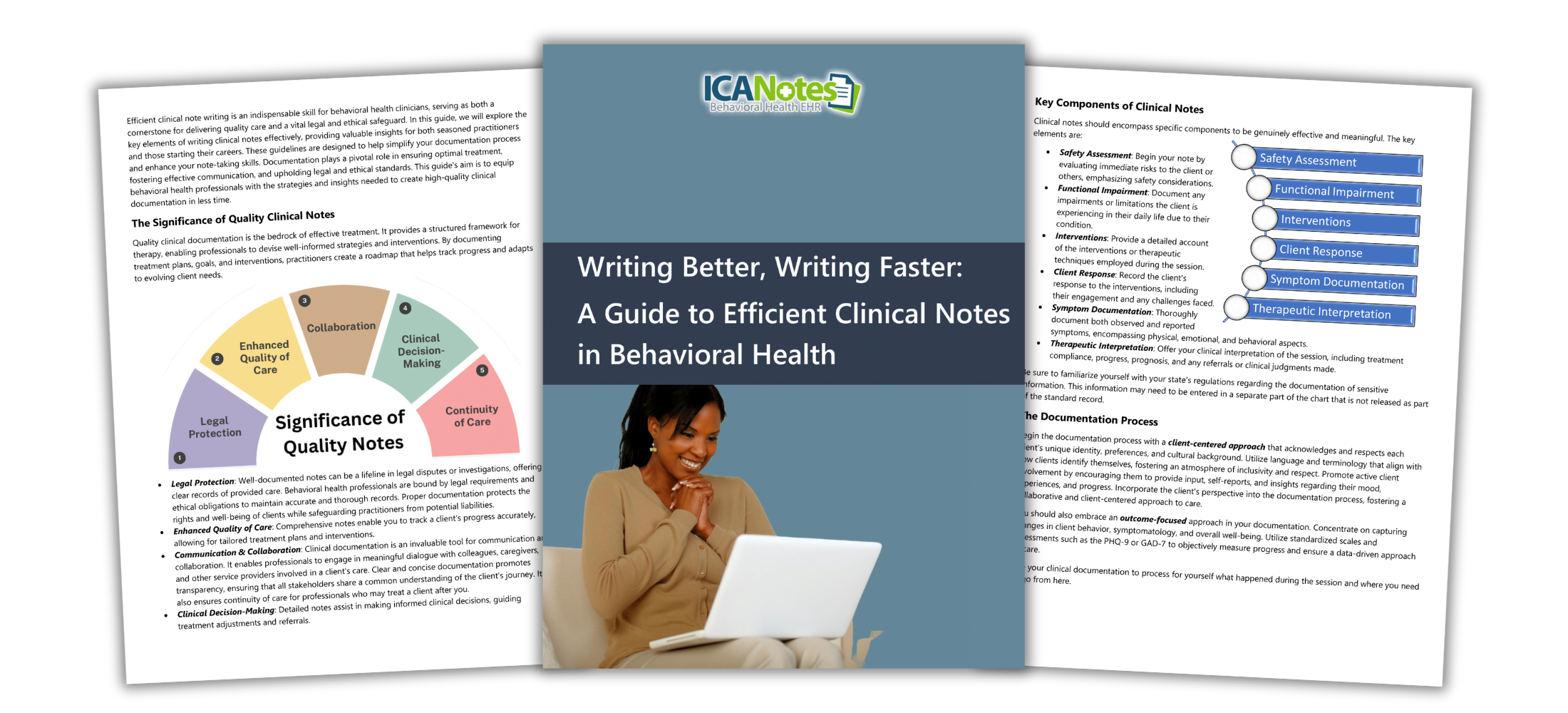
Let me start by saying this. There’s nothing to be ashamed of in regard to your documentation. Truly.
- Even if you feel a pit in your stomach when you think about anyone reading your progress notes
- Even if you’re weeks or months behind on progress notes
- Even if you don’t understand the point of treatment plans
- Even if you don’t do any documentation at all
- Even if you’ve gotten in “trouble” from insurance companies for poor documentation
Shame is a pretty heavy word when talking about documentation
And yet, if you take a moment to think about documentation – to just connect with your body and your heart – I know many of you feel literal shame in your body. You feel like there’s something wrong with you. That you should know better or do better by now. Maybe you’ve felt like this in a lot of areas in your life. Maybe this reminds you of old stuff from your childhood or adolescence. Maybe you just had some really terrible experiences during your training or in prior jobs. It’s time to move forward and release that old shame that isn’t serving you.
Download our Free Guide to Writing Better Notes
This resource is essential for any clinician looking to save time while maintaining high standards in documentation. This guide covers streamlined note-writing techniques, and best practices for organizing progress notes and treatment plans.

How do we release the shame and move forward?
Today we want to dive into how this shame keeps you stuck and the reality of what needs to happen to change your relationship with documentation so you can truly enjoy the powerful work you do with clients.
Documentation should make you feel good!
The truth is, documentation should highlight the powerful work you do. It should be a time to explore what needs to shift and your plan. It might be hard sometimes, but it should be sort of uplifting to read back through or have someone else read it.
Shame and fear are the normal teachers in our field
Many of us have such shaming experiences with documentation because it’s been passed down from agency and clinical supervisor to the next one. And it’s been a tool used by insurance companies in some cases to reduce their operating costs. If insurance companies can convince you there’s something wrong with you and your work, then the odds of you pushing to get reimbursement for the great work you do goes down and their expenses go down.
There’s no downside for the insurance company if you don’t get paid. So often, even though they have clear guidelines about documentation, they either make them hard to find, or they simply don’t share them with you at all.
We were NOT taught how to do documentation in real life
I know – you weren’t even taught how to do this! You’re not alone. I wasn’t taught anything beyond SOAP notes in grad school. It was this cold assessment that didn’t really seem at all related to what I experienced in the room with clients. There was nothing wrong with me that I didn’t know how to do this. How would I possibly know this skill, and how would you?
We were taught to put our clients first
Clients come first, right? And then we’d be given outrageous caseloads and unrealistic documentation requirements. Many of us were put in situations where the only way to get documentation completed was to do hours of unpaid labor every week. Documentation happened because we skipped lunches or dinners and missed out on sleep.
What if documentation in your private practice could be different?
What if your progress notes and treatment plan were a beautiful love letter to clients? What if you died tomorrow and had no time to say goodbye to your clients or make a plan for their future therapy treatment? Your progress notes give them a record of these amazing relationships, your progress, and what’s left to do for them and any future provider.
You’re the witness to their transformation
You’re also keeping a record, a story of their life and their progress from this outside perspective, that’s invaluable. Think about this as if you were remodeling a home. We all love those Pinterest-worthy before and afters for how we change spaces. Your progress notes can be those little snapshots of how life used to look, feel, and function.
It’s incredibly easy for clients to get stuck on just focusing on what hasn’t changed and what isn’t working. Taking them back through these snapshots in time can be invaluable to them really taking in their progress and getting the most out of the therapy experience. You may be the only real witness who got the full, whole story. It’s powerful for you to hold that space for them!
When we release the shame, we have room for learning
As you release that shame and know nothing is wrong with you, and replace it with the love you have for yourself and your clients, it just becomes a journey of exploration.
What’s a process that really works for me and my clients? How can I make this valuable to me and my clients? How can I ensure I’m getting paid for this important labor I’m doing – the progress notes AND the clinical work?
Once you do this, the topic of notes leading to a pit in your stomach begins to change into being something you can read through and get excited about as you remember the beautiful transformation. OR, even in the rare event that things aren’t changing or shifting, you see the data of what hasn’t worked so you can create a plan or find a referral that could work.
And isn’t it great when you can read through a file and easily see what the client has already tried so you aren’t replicating something that doesn’t work?
Your invitation for today
First, do some exploration and determine if there’s any shame wrapped up in your documentation story. If so, let’s unpack that and release it. And then, let’s find some love for our amazing clients and work and create a whole new story about the beauty of documentation and the work we do.
Looking for more resources to change your relationship with documentation? Check out this free documentation training from ICANotes here and register for a free trial of our behavioral health note writing software here. You can also check out the award-winning Business School for Therapists if you’re looking to create a sustainable, happy practice that gets great clinical outcomes. Learn more about the business-building program for therapists here!


